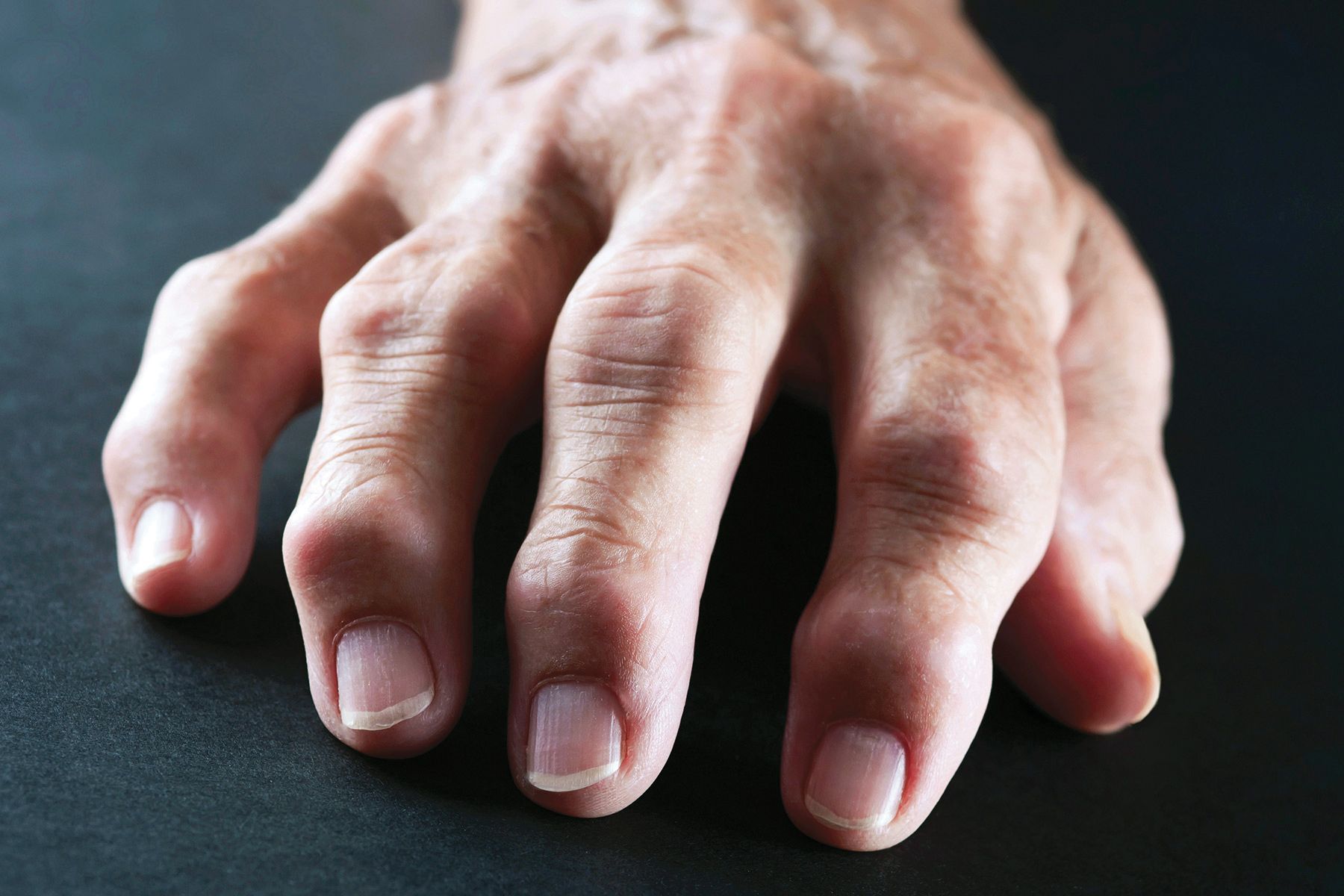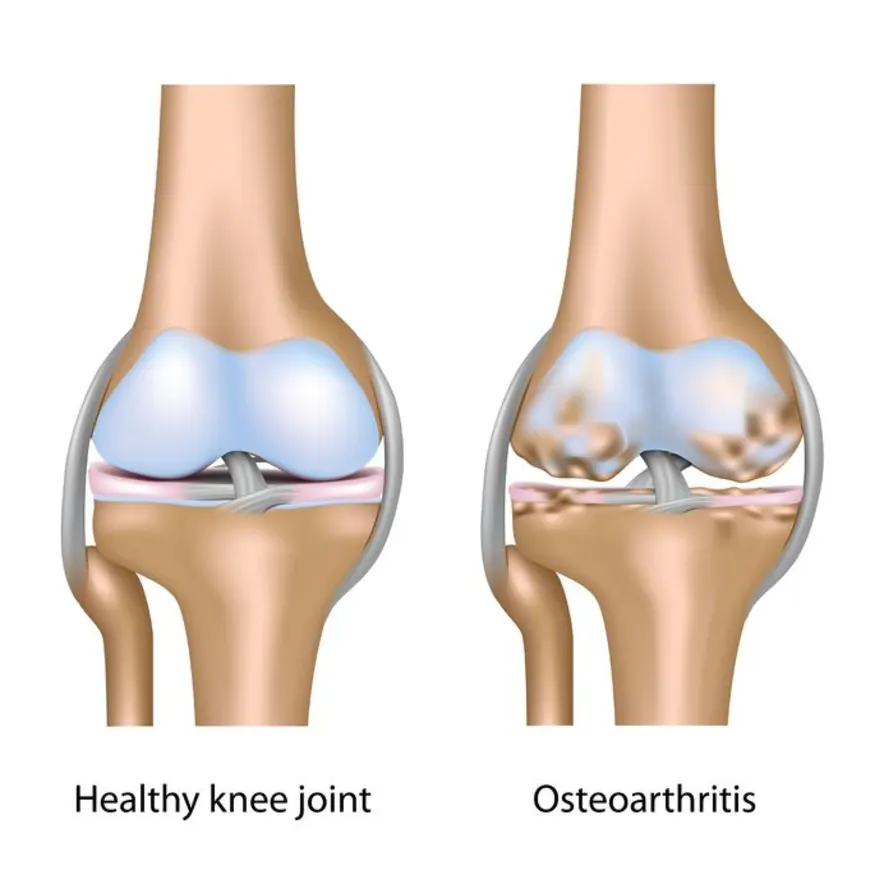Anatomy, Arthritis, Arthrology, Autoimmune disease, Complications, Immunopathology, Inflammatory, Joints, Medicine, Pannus.
Root Cause of Disease
Rheumatoid arthritis it is one the type of Knee Pain. The most debilitating form of arthritis, rheumatoid arthritis is an autoimmune condition that can affect almost any joint in your body, including your knees. Although rheumatoid arthritis is a chronic disease, it tends to vary in severity and may even come and go.
Rheumatoid arthritis is a chronic inflammatory disorder that can affect more than just your joints. In some people, the condition can damage a wide variety of body systems, including the skin, eyes, lungs, heart and blood vessels. An autoimmune disorder, rheumatoid arthritis occurs when your immune system mistakenly attacks your own body’s tissues.
Unlike the wear-and-tear damage of osteoarthritis, rheumatoid arthritis affects the lining of your joints, causing a painful swelling that can eventually result in bone erosion and joint deformity.
The inflammation associated with rheumatoid arthritis is what can damage other parts of the body as well. While new types of medications have improved treatment options dramatically, severe rheumatoid arthritis can still cause physical disabilities.
Symptoms
- Pain or aching in more than one joint
- Stiffness in more than one joint
- Tenderness and swelling in more than one joint
- The same symptoms on both sides of the body (such as in both hands or both knees)
- Weight loss
- Fever
- Fatigue or tiredness
- Weakness
Causes
Rheumatoid arthritis is an autoimmune disease. Normally, your immune system helps protect your body from infection and disease. In rheumatoid arthritis, your immune system attacks healthy tissue in your joints. It can also cause medical problems with your heart, lungs, nerves, eyes and skin.
Doctors don’t know what starts this process, although a genetic component appears likely. While your genes don’t actually cause rheumatoid arthritis, they can make you more likely to react to environmental factors — such as infection with certain viruses and bacteria — that may trigger the disease.
Factors that may increase your risk of rheumatoid arthritis include:
- Your sex: Women are more likely than men to develop rheumatoid arthritis.
- Age: Rheumatoid arthritis can occur at any age, but it most commonly begins in middle age.
- Family history: If a member of your family has rheumatoid arthritis, you may have an increased risk of the disease.
- Smoking: Cigarette smoking increases your risk of developing rheumatoid arthritis, particularly if you have a genetic predisposition for developing the disease. Smoking also appears to be associated with greater disease severity.
- Excess weight: People who are overweight appear to be at a somewhat higher risk of developing rheumatoid arthritis.
Home Remedies to treat Rheumatoid arthiritis
Remedy-1: Turmeric

Add a pinch of turmeric and a teaspoon of honey in a glass of lukewarm water and drink this solution on a regular basis for a week. Turmeric contains anti-inflammatory and antioxidant properties, which makes it an excellent remedy for treating joint pains.
Remedy – 2: Ginger
Materials: Ginger

Ginger is biologically called Zingiber Officinale. These can be easily included in your diet and go a long way in curbing knee pain
Product Link: Ginger
Remedy – 3: Garlic
Materials: Garlic

The medical name for garlic is allium sativum. Five to six cloves eaten everyday has proved to reduce knee pains.
Other Remedies
Borage oil
If you have swollen and tender joints, then you should use borage oil. This oil reduces tender and swollen joints. Borage oil is good for the relief you the pain caused by rheumatoid arthritis. This oil has negative effects if you are not using it, as your doctor said. Some of the negative effects are bloating, increased risk for bleeding (especially for people who are using medicines), and upset stomach.
Bromelain
Bromelain is also known as Ananas comosus. This is a tropical pineapple plant. It contains the active enzyme bromelain. It has been so many decades in Central and South America to treat rheumatoid arthritis, inflammation, and indigestion. Bromelain is improving health and also reducing the pain caused by rheumatoid arthritis.
Boswellia
Boswellia serrata, or Boswellia, contains anti-inflammatory properties. This plant is native to India and Pakistan. Also it is known as Indian frankincense. Acids contained in the Boswellia serrata interfere with the leukotrienes, causing inflammation in the body. This plant is available in capsule form or as a topical cream. Many studies have shown that this plant is improving the organism which is affected by rheumatoid arthritis.
Cayenne Pepper
This plant has been used for decades to treat digestive aid, but these days, it is more used to treat pain. Cayenne pepper contains active substances, which are called capsaicin.
If you apply topical creams of cayenne pepper, then you will feel temporarily relieved from pain and minor aches which are associated with rheumatoid arthritis. This is confirmed by many studies which were done by famous medicine centers. One of these studies has shown that this plant is good for mild pain relief.
Preventions
- Don’t smoke
- Eat a Mediterranean diet high in vegetables, fruit, olive oil, nuts and wholegrains
- Exercise 20-30 minutes a day
- Avoid high salt in your diet
- Add more fish and omega-3 to your diet
- Cut down on sugar-sweetened soft drinks




